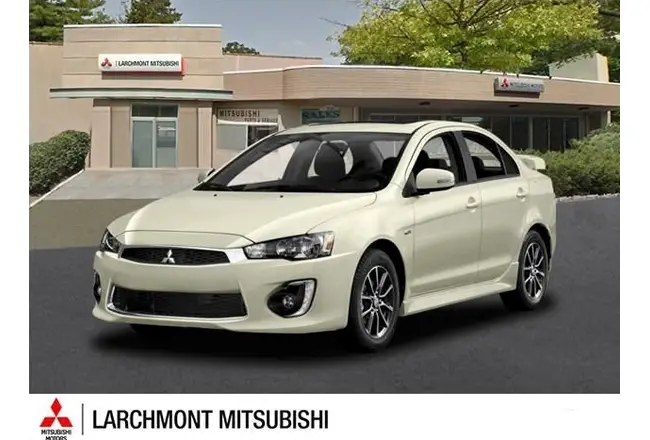Larchmont Mitsubishi accused of fraud; dealer says it has cleaned house
Victory car dealerships in Larchmont and the Bronx made at least $751,000 selling an anti-theft service from 2012 through 2016, but the service they were selling was illusory, the state attorney general said.
 A customer who bought a vehicle at Victory Mitsubishi in Larchmont in 2015, for instance, noticed a puzzling $1,995 charge, itemized as “etch” on her bill of sale.
A customer who bought a vehicle at Victory Mitsubishi in Larchmont in 2015, for instance, noticed a puzzling $1,995 charge, itemized as “etch” on her bill of sale.
She had not been told about the product, the state said, and had she known she would not have bought it.
Victory made a full refund, but by then, investigators for New York state Attorney General Eric T. Schneiderman were on the case.
Yesterday, the attorney general sued Victory Mitsubishi and Victory Suzuki of the Bronx in Westchester Supreme Court, accusing them of deceptive and fraudulent practices. The Victory dealers allegedly charged 1,155 customers for the etching service, either without their consent or without actually doing the work.
A Victory official tells a different story. Theo Theodorou, general manager, said a customer complained about the practice in 2014 and the company launched an internal investigation.
“Managers were overcharging for the product,” he said. “As soon as we were made aware of it, we worked hand-in-hand with the attorney general.”
He said Victory cleaned house, firing every manager and employee involved in the matter.
“This is not the way anybody wants to do business,” he said.
The car dealerships are owned by Philip Argyropoulos of Glen Head, Long Island, an attorney practicing in Astoria, Queens. He was not charged in the lawsuit.
The concept of the service is that thefts can be deterred by etching a serial number on windows, and if the vehicle is stolen police can more easily recover it. Insurance companies are required in New York to provide a 5 percent discount on annual comprehensive coverage, for such anti-theft services.
Victory sold the service as an option, after customers agreed on the vehicle purchase price but before they signed the final deal.
The price was arbitrary, averaging $650 but ranging from $129 to $3,998.
Victory presented the option as a vehicle replacement discount allowance or an etch guarantee.
Customers could buy a $2,500 discount or a $5,000 discount toward a replacement vehicle. But the discounts were deceptive, the state said, because Victory did not disclose the base price on which the discount would be applied.
“The obligation to provide the discount allowance,” the state claims, “is therefore so insubstantial that it is virtually nonexistent.”
In fact, the lawsuit states, none of Victory”™s customers who bought the etch guarantee ever received a discount allowance.
The contract also imposed several conditions.
The discount would not apply if it caused Victory to lose money or break even on the transaction. Car owners had to maintain damage insurance on 100 percent of the cash value of the vehicle. They had to report the loss to law enforcement within 24 hours. They had to use the discount within 90 days of the loss and they could buy the replacement vehicle only from Victory.
The attorney general claims that Victory repeatedly failed to offer customers the opportunity to review sales documents before signing.
After customers had agreed on a purchase price, they were directed to a “finance and insurance” manager who tried to sell more products and services.
But instead of offering the etch guarantee to customers, the attorney general claims, the managers simply added the item to the bill of sale for an amount that customers had not consented to.
In some cases, customers were led to believe they were buying a type of insurance or warranty. Others were told that the etch guarantee was mandatory and not an option they could decline.
“Victory dealerships repeatedly and persistently fail(ed) to discuss the product and disclose the price,” according to the lawsuit.
Many customers didn”™t discover the charges until they got home. Some buyers never realized they had bought the service.
In many instances, the state said, vehicle windows were not permanently etched with a serial number.
Theodorou said Victory has contacted every customer it could find who had issues with the service. The company has settled with more than 100 customers.
“Most were paid more than what they shelled out,” he said.
The lawsuit accuses Victory of fraud and of deceptive practices. The attorney general is asking the court to order Victory to stop engaging in the practices, pay restitution to the customers and pay $5,000 for each violation.